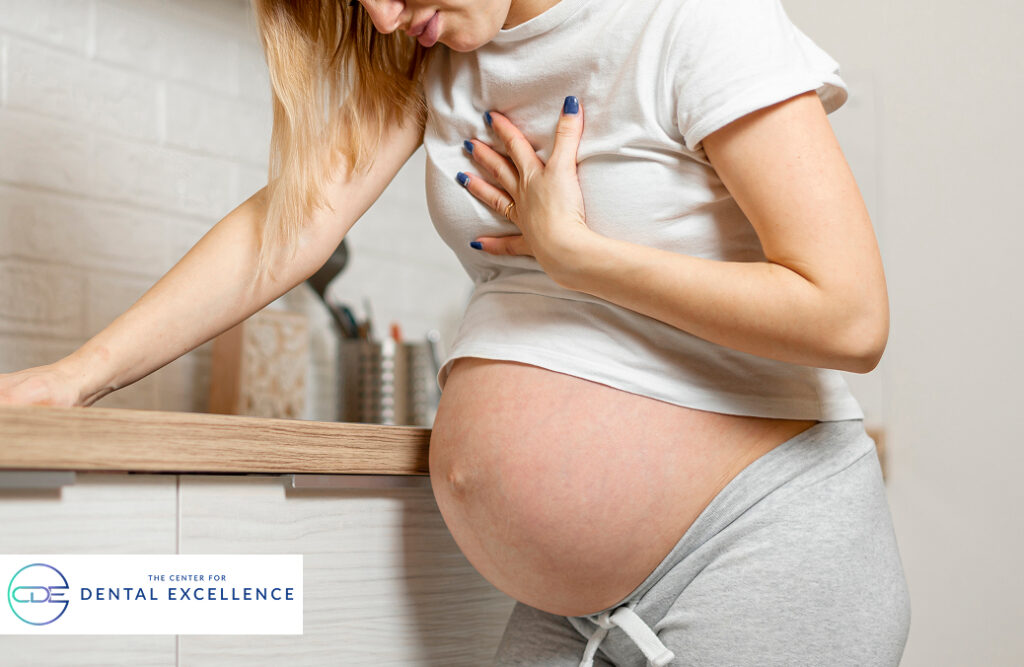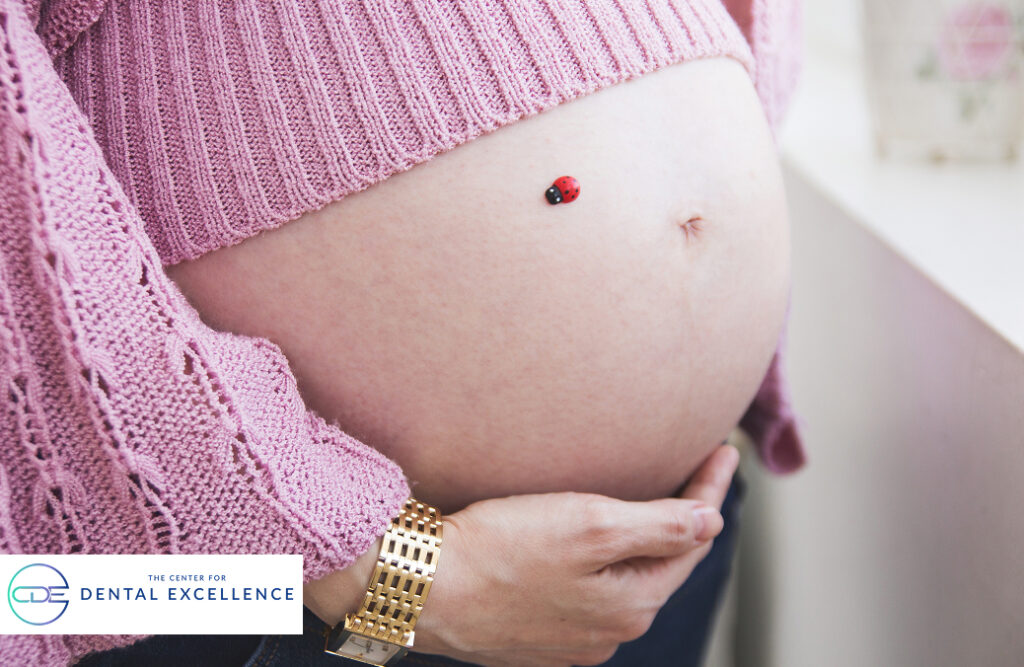You may have heard people say, “gain a child, lose a tooth.” It can sound a little scary. This is an old idea, and it’s not totally true today. Still, there is some truth in the thought that pregnancy can change your oral health in ways you might not expect. The good news is that you can have a healthy smile during your pregnancy and after it, too, if you know what to do and take care of your teeth.
So, what’s actually going on in your mouth during those nine months? Let’s break it down. You need to know how you can keep your teeth and gums healthy while your baby grows.

The Hormonal Rollercoaster in Your Mouth
When you are pregnant, the body makes a lot more hormones. Levels of estrogen and progesterone go way up. They can be 10 to 30 times higher than normal. These hormones help your baby grow. But, at the same time, they can cause changes in your mouth.
These hormonal changes can affect how your gums feel and react to plaque. If you are pregnant, you might see your gums get more sensitive or puffy. They may bleed when you brush or floss. Do not worry—this happens a lot. Up to 70% of pregnant women have this problem. Your gums are not sick. They are just handling things a little differently because of the hormonal changes.
Pregnancy Gingivitis: Your Gums Gone Wild
Let’s talk about pregnancy gingivitis. This is a type of gingivitis that often starts in the second month of pregnancy. It can last until after you have your baby. Your gums may look more red and feel sore. You might also notice your gums bleed more when you are brushing your teeth. The main things to watch for are red gums, sore gums, and bleeding when brushing. Pregnancy gingivitis is something many people get during this time.
The frustrating part is that you may feel like you are doing everything right with your oral hygiene. You brush and take care of your teeth, but still notice some changes. It’s not something you are doing wrong. The hormones in your body just make your gums react more to the bacteria in your mouth.
Here is what you can do to help control pregnancy gingivitis:
- Brush your teeth twice each day. Use a toothbrush that has soft bristles. Make sure to brush your teeth and gums gently, but also clean everything well.
- Do not skip flossing, even if your gums may bleed a bit. Flossing helps your gums stay healthy over time.
- Use a mouthwash that does not have alcohol in it. This can help lower the number of bacteria in your mouth.
- Think about using a toothpaste made for people who have sensitive gums. A good toothpaste and the right toothbrush really help take care of your gums.
The Morning Sickness Effect on Your Teeth
If you have morning sickness, you are not alone. A lot of people feel sick at times that are not mornings, too. Morning sickness can also bring problems for your oral health. When you throw up often, the acid from your stomach touches your teeth. That strong acid can wear down the enamel on your teeth after some time.
After you have been sick, do not brush your teeth right away. It may feel odd, but brushing right after vomiting can hurt your enamel because acid makes it soft. Instead, rinse your mouth with water. You can also use a mix of one teaspoon of baking soda in a cup of water. Then, wait at least 30 minutes before brushing your teeth. This helps protect your enamel and keeps your mouth healthy.

Pregnancy Tumors: Scarier Name Than Reality
Don’t worry about the name. These guys are not real tumors. These are harmless growths that may show up on your gums, often between your teeth. This can happen in the second trimester. The cause is the mix of pregnancy hormones and irritation from plaque.
These growths do not usually hurt and tend to look like small red bumps. They may feel annoying and can bleed easily. The good news is, they often go away by themselves after you have the baby. If you feel a lot of discomfort or if the growth is making it hard for you to eat, your local dentist can take care of it and remove it safely, even while you are pregnant.
Changes in Your Saliva and Taste
Pregnancy can make some surprising changes happen in your mouth. You may find that your food tastes different. The taste of metal may not go away, and your saliva can feel strange. Some women notice they have more saliva when they are pregnant. Others can feel like their mouth is dry.
If you’re dealing with excess saliva, try:
- Eating small meals more often
- Not eating starchy foods
- Chewing gum without sugar
- Using mouthwash that has no alcohol
For dry mouth, make sure you drink plenty of water to stay hydrated. You can chew sugar-free gum to help your mouth make more saliva. At night, using a humidifier in your bedroom can also be good for this.
The Calcium Question: Are You Really Losing It?
Your baby does not take calcium from your teeth. The body is smarter than that. It will take calcium from your bones, not your teeth, if it needs to. But if you do not get enough calcium in your food, it can hurt your bone health, even for the bones that help hold your teeth.
Make sure you get enough calcium. You can do this by eating dairy products, leafy greens, or foods with extra calcium. You can also take supplements if your doctor says you should. Your teeth and bones will thank you for it.
Safe Dental Care During Pregnancy
Many women feel unsure about going to the dentist when they are pregnant. The truth is, it is safe to see your dentist during pregnancy. In fact, it is good for your oral health to keep up with regular checkups at this time. The second trimester is often seen as the best time for normal dental work. Still, if you feel any problems in your mouth, do not wait. You should get help from your dentist right away.
Be sure to tell your dental team if you are pregnant and how many weeks along you are. They will be careful and skip some treatments or medicines if they need to. Routine cleaning, getting a filling, or even some urgent dental work is safe when you are pregnant.

Practical Tips for Maintaining Your Oral Health
Here are a few easy ways to keep your smile healthy while you are pregnant:
Stick to Your Routine: Even if you feel tired or have morning sickness, it’s important to keep up with brushing and flossing. If the taste of your normal toothpaste makes you feel sick, you can use a mild or children’s toothpaste for now.
Eat Smart: Pick snacks that are good for your teeth, like cheese, yogurt, and fresh fruits. If you want to eat sweets, have them with your meals. This can help lower the acid in your mouth.
Stay Hydrated: Drinking lots of water helps to wash away food and bacteria. It is also good to drink water because it can stop your mouth from getting dry.
Don’t Ignore Problems: If you notice your gums still bleeding, feel some discomfort, or spot any changes, don’t brush it off. It’s better to check in with your dentist sooner rather than later.
Your Smile After Baby Arrives
The great thing is that after you have your baby, most changes to your oral health go away on their own because your hormones get back to normal. But the things you do for oral health during pregnancy can stay with you. So, this is a good time to start a simple and good oral health routine. This will help you now and as you become a mom.
Remember to look after your oral health when you are pregnant. It’s not only for you – some research says that gum disease may be connected to early births and low birth weight. By keeping up with good oral health, you help protect both yourself and your baby.
Your pregnancy is special, and so is the way you need to care for your oral health. If you have any worries or questions, please contact your dental team. We are here for you at every stage. It’s our goal to help you keep your smile healthy and bright as you get ready to welcome your new baby.